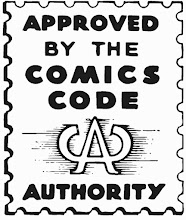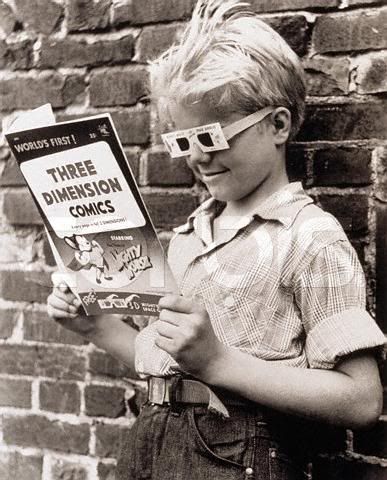Annual Report
 As a kid I used to love comic annuals, they were often double-sized (at least) and were chock full of "extra" material that the monthly series lacked the space to publish. All this for just a little more money, too bad they only came once a year.
As a kid I used to love comic annuals, they were often double-sized (at least) and were chock full of "extra" material that the monthly series lacked the space to publish. All this for just a little more money, too bad they only came once a year.Originally they were nothing more than reprint vehicles, a good way to sell the same stories to a new public (or to the same public who were fooled or just had to get everything Marvel/DC published). What also was very profitable to the publishers is that they have to pay the artists as under the work-for-hire regime all the art and all the rights belonged to the company to reprint ad infinitum.
But after a while common sense prevailed and most annuals got new longer single stories and multiple stories in a single annual. There still was the odd reprint, but at least for much of the 60's and 70's the balance was perfect between new stories, epilogues to stories published in the regular comics and reprints of older stories now unavailable (or too expensive) for the everyday comic reader. Also popular among the extras were biographical information on featured characters, full-page pin-ups of characters and "back-up" stories.
Later annuals often featured stories with greater importance to the characters featured than in the monthly publication, reflecting the "special" status of their once-yearly publication. Annuals also sometimes featured the finale of a multi-issue storyline running in the monthly series and became unmissable.


The publishers started seeing dollar signs when they realized that if a regular story concluded in the annual, everybody was forded to buy the annual.
But the publishers smelled even more money and they wanted Joe Collector to buy ALL annuals. Now annual were usually released in the summer of the year,and became more and more unified and thus the much maligned crossover storyline came to be. Marvel and DC thought it a good idea in bringing many of the characters in continuities together for a single overall event.Sounds like a good idea on paper right ? Well not quite, this meant that writers and artists were very restricted in what they could do as everything had to "gel" and each issue had to end on a cliffhanger so the public was forced to buy all of them. A lot of the stories in the annuals of the mid 80's through to the 90's seem very convoluted and are oft riddled with inconsistencies. Artists had to draw characters they were uncomfortable with or unaccustomed too so the art was lacking too.
Annuals started to die out in the late 90's due to the near-collapse of the comic book industry in the wake of the speculator boom. After the recession, they were reinstated but sparingly but by no means as regularly as before the "bust", when numbered series of annuals had reached the teens or twenties, indicating over a decade of regular publication. But the good news is that if and when an annual hits the stands (ok, the comic book shop) it's never a bunch of reprints anymore or part of a crossover...it's a proper annual again.


I bought the pictured annuals a few weeks ago, all from the early 60's and all cross-over free (but some do have the odd reprint)
FF Annual #2 from 1964 has that iconic Dr Doom cover and is a key book because Doom's origins were finally revealed here, more than two years after his first appearance.
Annual #4 & #5 started using the wording "King Size Special" instead of Annual, but #6 uses both "Kings Size Special" and "Annual"... Marvel was always experimenting during the Silver Age. But don't you just love those (Kirby) covers ?
I still need #1 & #3...but I'm working on it.
Labels: Annuals, comics, DC, Dr Doom, Fantastic Four, Kirby, Marvel, Silver Age




